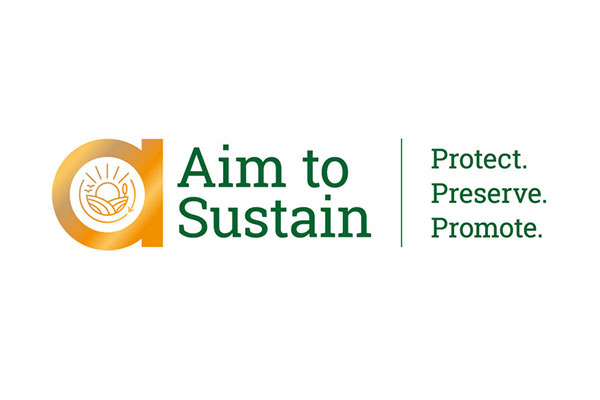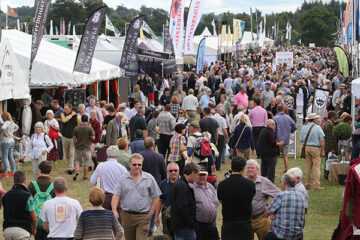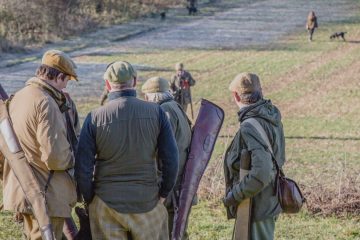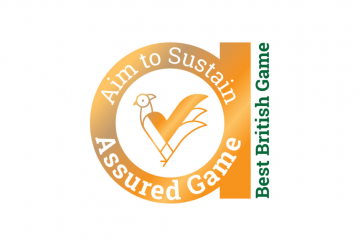Gamebird Releasing Licence GL43 – Letter to the Secretary of State

The Rt Hon Thérèse Coffey MP
Secretary of State
DEFRA
Seacole Building
2 Marsham Street London SW1P 4DF
7/6/2023
Gamebird Releasing Licence GL43
Dear Secretary of State
We write to you having attended a ‘Gamebird Release Licensing Briefing’ with DEFRA and Natural England on Tuesday 6 June. The meeting was attended by members of the Aim to Sustain partnership, namely the Game Farmers’ Association, the National Gamekeepers’ Organisation, the Moorland Association, the Countryside Alliance, the British Association for Shooting and Conservation, the CLA as well as the Game and Wildlife Conservation Trust (who act as scientific advisors to Aim to Sustain). The meeting was also attended by the Chairman of the North York Moors Shooting Association.
In previous years we have been engaged with DEFRA in constructive dialogue relating to the issuing of GL43. This year it appears we have been excluded from doing this – we are not certain why.
When we met in April 2022 to review and discuss the 2022 GL43 licence, we asked for and were assured that we would be given greater notice about any proposed changes to allow the sector to plan its cycle of production. This is essential as shoots start planning for the next season from the previous October/November – almost a year in advance. Despite this request and assurance, we as a group were notified of this year’s changes on 10th May 2023. By this time, business contracts will have been signed and payments made to secure birds for the coming season. Most of this year’s chicks will have already hatched, leaving game farms and estates with serious animal welfare issues if Individual Licences are not issued promptly and shoots are unable to release birds.
Consequently, we have a very real and potentially significant welfare issue looming that has not been considered thoroughly by NE and DEFRA. What is to happen to those birds if licences are not issued? Release can be held off for up to a week at maximum before welfare issues materialise. From what we heard at the meeting yesterday and through our experience with working with shoots over the past week with licence applications and requests for information from Natural England, we have no confidence that the NE licensing team will be able to provide licences in time for this summer’s release.
It also appears that the change in licence conditions is based on a shadow Habitats Regulation Assessment (HRA) conducted by NE which in turn appears to have been largely influenced by the Avian Influenza risk assessment published by DEFRA on 15th December 2022. This focused on the possible risk of the transmission of highly pathogenic avian influenza (HPAI) from released gamebirds to wild birds during the summer of 2022.
The qualitative risk assessment (QRA) made clear under the section entitled Scope, that: “This assessment is only applicable to the current HPAI 2021/22 season, since there has been an unprecedented length to the epizootic disease in GB. Previous or subsequent HPAI seasons are outside the scope of this assessment.” DEFRA accepted that the QRA was based on a number of assumptions, had a high degree of uncertainty in its findings and specifically assured us that it would not be used to inform future policy making decisions. We were told by DEFRA that if HPAI continued to be a serious issue in 2023, and changes in policy were being considered, then a new risk assessment would be undertaken, taking into account up to date and emerging evidence. The QRA also overlooks two key points. Firstly, as far as we know there have been no cases of gamebirds being infected prior to release and introducing HPAI to a wild bird population. Secondly, for gamebirds to be infected post release, HPAI has to already be present in wild birds at or near the release site, meaning there is already considerable risk to native wild birds irrespective of any gamebird release.
Representatives from the Aim to Sustain partnership organisations have throughout the current outbreak of HPAI attended many meetings and worked collaboratively with the relevant team at DEFRA and other partners, to ensure our sector has played an active part in tackling the current outbreak of HPAI. We would note that at many of these, representatives of the DEFRA team which is leading on GL43, and indeed NE, appear to have largely been absent. Perhaps if they had chosen to attend then they would have a better understanding of the work the game sector does to prevent the spread of this virus. Estates and shoots do not want to spread the disease and they operate to the highest biosecurity standards in order to prevent that from happening.
The game sector has gone through three very difficult years: two years of Covid, followed by Avian Influenza. Many shoots are not operating to their usual potential due to these problems. Owing to very poor communication from the DEFRA/NE licensing teams we have seen an unusually low level of release data reports being returned to NE. The team at DEFRA who made the decision to change GL43 have suggested that the changes will affect only forty-two shoots across all of England. Aim to Sustain estimates that this figure is way short of the mark and from our information is well in to three figures.
These late changes to the GL43 licence risk serious social, mental health and economic issues along with issues of animal welfare brought about by a combination of poor communication, and a lack of consultation with professional game and wildlife managers and specialist vets. The decision to make this late change to GL43 will without a doubt lead to gamekeepers and shoot managers being made redundant, resulting in a loss of livelihood and income and in most cases accommodation and housing for them and their families. We are hugely concerned about how these inevitable redundancies and the worry of redundancy will impact on the mental wellbeing of gamekeepers, estate owners, and rural business owners. There is a fundamental lack of understanding shown by both NE and DEFRA regarding the impact that this will have on the sector which is extremely concerning, as is the fact that there has not been an adequate economic, environmental and social impact study carried out to ascertain the level of damage that these restrictions will cause, not only to rural businesses and conservation projects, but also to human lives and livelihoods.
Therefore, we urge DEFRA to re-issue GL43 with SPAs included alongside SACs to prevent an animal welfare crisis and economic collapse of a wide range of rural businesses and to provide certainty to the sector.
We look forward to a response as soon as possible.
Yours sincerely



